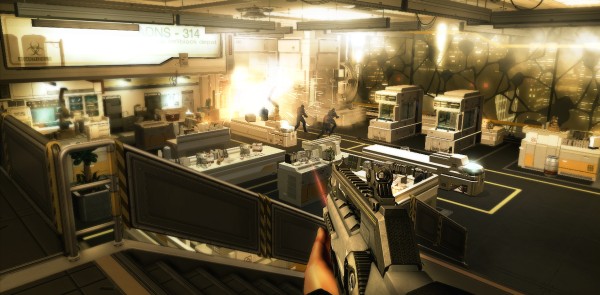

If you played any other game back in 2000 and saw a fence, you would assume instantly that it was a literal barrier not to be crossed and even if you did manage to get over you would be met with an invisible wall.

Deus Ex also challenged gamers to really question their surroundings - not just in terms of narrative but in gameplay, too. I'm sure many fans have fond memories of being told off by one's superior for going into the female restroom during a mission. What you say in Deus Ex will alter people's opinions of you depending on their beliefs, and such choice extends to actions you carry out in the physical world rather than just a dialogue option. Most modern RPG's give you a 'choice' through a dialogue option, which usually boils down to something as bi-polar as "bad" or "good" responses. These can range from silent running to seeing through walls build a character in any way you see fit.ĭeus Ex is so revered because of just how forward thinking it was. While the specific mechanics alter between game, the general premise is the player unlocks experience points, which go towards purchasing and upgrading augmentations. Central to Deus Ex are the augmentations the protagonist has been mechanically or nano-technically altered, being able to perform superhuman actions.

The Designers, Warren Spector and Harvey Smith coined the game as an Immersive simulator, where nothing reminds you that youre playing a video game. The series (specifically, the first game) has garnered much praise from its pioneering design in the players freedom of choice and multiple approaches to any given situation. The series consists of Deus Ex (2000), Deus Ex: Invisible War (2003) and Deus Ex: Human Revolution (2011). Deus Ex is a series of award-winning cyberpunk themed action/role playing games. There may be many newcomers to the Deus Ex series with the release of Human Revolution, so here is a brief summary of the series so far.


 0 kommentar(er)
0 kommentar(er)
